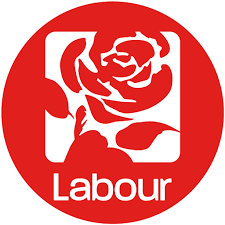What’s the difference between Social Democracy and Democratic Socialism?
Clarifying the similarities, differences, and shared goals.
Thank you for reading JoeWrote. This post is first available to premium subscribers. If you’d like to read it, you can access a full membership for whatever price fits your budget, even as low as $1.
Thank you for your support. In Solidarity — Joe
“What’s the difference between social democracy and democratic socialism?” is one of the most common questions people ask when entering leftist politics. While their names appear interchangeable and their espoused policies are remarkably similar, there is a foundational difference between social democrats and democratic socialists.
Before World War I, social democrats were socialists who participated in electoral politics. They ran for office in national legislatures and parliaments intending to bring about socialism through a slow, gradual process of legislation. The Fabian Society, a British socialist organization founded in 1884, embodied this mantra by adopting a tortoise as its icon, representing the social democratic strategy of a constant crawl toward socialism. This contrasted with the more revolutionary branches of socialism, such as anarchism and communism, which saw an overthrow of the capitalist governments as the only way to achieve worker control of society.
The breaking point between social democracy and socialism came in World War I when the German Social Democratic Party (SDP) voted for Germany’s war effort. This was seen by international socialists (as well as many in the SDP) as a betrayal of socialism, as the SDP chose German nationalism over the international working class. Since this point, social democracy drifted away from socialism into its own political ideology.
In modern terms, social democracy is broadly understood to be a compromise between socialism and capitalism. Social democratic states ensure citizens have a high standard of living through guaranteed healthcare, education, unemployment benefits, and other public goods. While the state owns large portions of the economy, capitalist businesses still exist, though they pay high taxes and their workers are heavily unionized. The Nordic Countries — Denmark, Norway, Sweden, and Finland — have strong social democratic tendencies.
Social Democracy, (n): a democratic welfare state that incorporates both capitalist and socialist practices.
Democratic socialism is exactly as it sounds. It’s a socio-economic system in which both the government and workplaces are democratically controlled. Workers run their workplaces through the elections of managers and citizens control their governments by electing leaders and voting on referendums. Key industries, such as transportation, healthcare, and weapons manufacturing, as well as the ownership of natural resources, are owned by the state, in turn meaning they are controlled by the citizens. And while democratic socialists are open to advancing the socialist cause through established political systems, it is not their only path to change. Extra-political action is commonly conducted by chapters of the Democratic Socialists of America (DSA), the country’s largest socialist organization.
The Top Takeaways from the 2023 DSA National Convention
I apologize for being a day late on this week’s free post. I drove back from Convention through the night and was quite depleted come Monday. I decided to wait until I was back to normal before publishing, as opposed to writing something sub-par in my delirium.
So, what’s the difference between social democracy and democratic socialism?
In short, democratic socialism takes everything social democracy offers with a “yes and” approach. In addition to robust welfare systems, strong public goods, and increased taxes to pay for them, democratic socialism has one core difference from social democracy — it aims to eliminate capitalist enterprise. In a social democracy, companies like Amazon and WalMart could operate as they currently do, hiring wage laborers and profiting off their work. But with democratic socialism, these companies would look much different. They would not be owned by capitalists but by the working class, either through a worker-cooperative model or state ownership.
“We believe there are many avenues that feed into the democratic road to socialism. Our vision pushes further than historic social democracy and leaves behind authoritarian visions of socialism in the dustbin of history.” - The DSA website
It is this key difference, the matter of who owns, controls, and reaps the value of an enterprise that separates social democracy from democratic socialism.
An example of this difference can be found in Tony Blair’s 1997 alteration of the constitution of the UK Labour Party. Founded as a socialist party in 1918, Labour moderated greatly with neoliberal policies during the Cold War. Blair hammered the final nail into the coffin of Labour Party socialism by removing the socialist clause in the party constitution, which had previously read:
“[The goal of the Labour Party is] To secure for workers by hand or by brain the full fairs of their industry and the most equitable distribution thereof that may be possible upon the basis of the common ownership of the means of production, distribution and exchange, and the best obtainable system of popular administration and control of each industry or service.”
By removing the call for the common ownership of the means of production (socialism), Blair turned the Labour Party into a social democratic party, one that is heavily sympathetic to private capital.
But while Blair purposely devolved Labour from socialism to social democracy, these two ideologies are not always mutually exclusive. Social democratic policies, such as universal healthcare, education, and housing are core pillars of the socialist movement, and many social democratic nations have ventured into socialism. One example is Norway, a self-described social democracy, which claims ownership of all petroleum extracted inside its national boundaries. The oil funds are funneled into a state account, which is used to fund the country’s robust social programs. As collective ownership of national resources is a core socialist belief, it’s fair to say Norway has brought a socialist component into its social democracy.

And that leads to my final point.
While online commentators will type long diatribes about whether or not a specific country, politician, or party is either a socialist or a social democrat, in my mind, it doesn’t really matter. At least in the United States, we’re so far from anything that smells like social democracy, never mind socialism, the incessant need to divide the groups does more harm than good. Are politicians like Ilhan Omar and AOC more akin to social democrats than democratic socialists? I’d say so. But as the goals of socialism and social democracy are aligned for the foreseeable future, I welcome social democracy as a worthwhile project.








I wonder , does your generational cohort in the DSA , read any books by Michael Harrington, or has he been consigned to the dustbin of history , Trotsky consigned Martov and the Mensheviks to in 1917?
https://archive.org/details/socialismpastfut00harr , https://archive.org/details/socialism00harr . Insofar as he is, is it mainly , indirectly , via critical polemics such as https://www.collectiveinkbooks.com/zer0-books/our-books/failure-vision-michael-harrington-democratic-socialism ?
Helpful explanation!